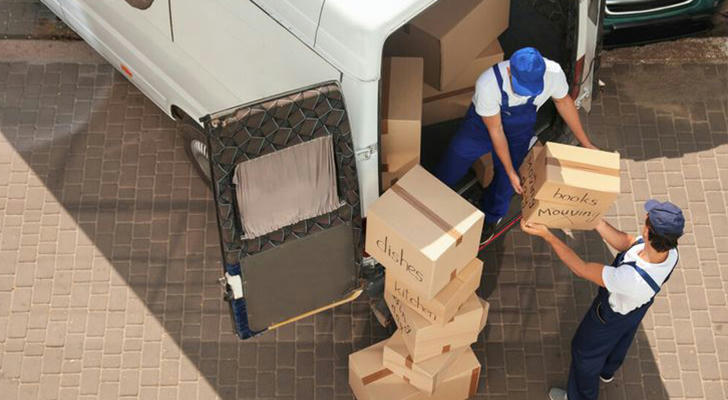Moving Services FAQ: Solving All Your Moving Concerns

Moving is a significant event in many people's lives, whether due to job relocation, family expansion, or other reasons. It involves a series of complex steps and decisions, from packing items to choosing a moving company, and dealing with various issues that may arise during the process. Each step requires careful consideration and planning. However, many people often feel confused and stressed when faced with these complicated moving procedures. Understanding and addressing common moving-related questions can help you better plan your move, making the entire process smoother and less stressful.

I. Addressing Common Moving Service Questions
1. How to Choose a Reliable Moving Company?
Selecting a reliable moving company is the first and most crucial step in the moving process. Here are some tips for choosing a moving company:
Check the company's reputation: Look at online reviews, social media, or ask for recommendations from friends to assess the company's service quality.
Ask for quotes: Obtain quotes from several companies and inquire whether there are any hidden fees.
Verify the company's credentials: Ensure the moving company has the necessary licenses and insurance to avoid disputes.
Service scope: Confirm that the moving company offers the services you need, such as packing, transportation, and furniture assembly/disassembly.
2. How Are Moving Costs Calculated?
Moving costs typically consist of the following components:
Basic fees: Including labor costs, transportation fees, etc.
Additional fees: Such as fees for stairs, long-distance transportation, large item handling, etc.
Insurance fees: Some companies offer moving insurance to protect against damage during the move.
Note: Different moving companies may calculate fees differently, so it’s advisable to understand and confirm the cost details in writing beforehand to avoid disputes later.
3. How to Pack Items to Ensure Safe Transport?
Packing is a crucial step in the moving process. Proper packing can significantly reduce the risk of damage:
Pack by category: Pack items according to their type (e.g., fragile items, electronics, clothing) and label the boxes accordingly.
Use protective materials: Such as bubble wrap and padding to protect fragile items.
Box weight: Keep the weight of each box manageable; overly heavy boxes are difficult to move and more prone to breaking.
4. What Should Be Noted on Moving Day?
Moving day is often the busiest time, so here are some things to keep in mind:
Ensure all items are packed: Make sure everything is packed and clearly labeled before the moving company arrives.
Supervise the moving process: Especially for valuables and fragile items, it’s best to supervise their handling personally.
Check the new home: Ensure that basic facilities like water, electricity, and locks are in good working order, and have a plan for where to place your items.
Record an inventory: Before moving, confirm an inventory list with the moving company and check the items after the move to ensure everything is accounted for.
5. How to Handle Lost or Damaged Items After Moving?
Even with the most careful planning, there is always a possibility of items getting lost or damaged. If this happens, you can:
Contact the moving company: Reach out to the moving company immediately and submit a list of lost or damaged items.
Review insurance terms: If you purchased moving insurance, review the policy and file a claim according to the insurance company's requirements.
Negotiate a solution: Attempt to negotiate a resolution with the moving company. If this fails, you may need to seek legal recourse to protect your rights.
6. What Are Common Extra Charges in Moving Services?
In addition to basic fees, here are some additional charges that might come up when hiring a moving company:
Stair fees: Additional fees if moving heavy items up or down stairs without an elevator.
Long-distance fees: Charges for transportation over a certain distance.
Large item handling fees: Extra charges for moving large items like pianos or refrigerators.
Understanding and confirming these extra charges in advance can help you avoid unnecessary costs later.

II. Case Study: Mr. Wang's Smooth Moving Experience
Background: Mr. Wang needed to move from Beijing to Shanghai due to a job relocation. He searched online and received recommendations from friends to find a few highly-rated moving companies. After carefully comparing costs and services, he chose a reputable and reasonably priced moving company.
The Process: On moving day, the moving company arrived on time, and the pre-packed items were efficiently loaded onto the truck. The moving company provided professional services, including disassembling and reassembling large furniture. After the move, Mr. Wang followed his pre-planned checklist to inspect his belongings and found everything intact. Because the moving company had been transparent about all potential costs, the entire move was smooth and without unexpected fees.
Emotional Reflection: After the move, Mr. Wang was very satisfied with the experience. He noted that choosing a reliable moving company and being well-prepared significantly reduced the stress of moving.

III. Conclusion
Moving is one of the significant events in life, and selecting the right moving company and understanding common moving issues can greatly improve the experience. Properly packing your belongings, choosing a suitable moving company, clarifying cost items, and being well-prepared on moving day can help you complete your move smoothly. I hope this FAQ has addressed all your moving concerns and will help you have a stress-free moving experience!
